Which is a modification into the spine in a cactus plant information
Home » modification » Which is a modification into the spine in a cactus plant informationYour Which is a modification into the spine in a cactus plant images are available in this site. Which is a modification into the spine in a cactus plant are a topic that is being searched for and liked by netizens now. You can Get the Which is a modification into the spine in a cactus plant files here. Get all royalty-free photos and vectors.
If you’re searching for which is a modification into the spine in a cactus plant pictures information related to the which is a modification into the spine in a cactus plant keyword, you have come to the ideal site. Our website frequently provides you with suggestions for viewing the highest quality video and picture content, please kindly surf and locate more enlightening video articles and graphics that fit your interests.
Which Is A Modification Into The Spine In A Cactus Plant. They also have other modifications to reduce the loss of water because in the deserts is rare to rain. These adaptations allow cactus species to grow in hot and dry places. Get the answers you need now. Most species of cacti have lost true leaves having only spines which are highly modified leaves as well as defending against the herbivores.
Why Does Cactus Have Spines And Rose Have Prickles Quora From quora.com
In this the leaves are modified into hooks and help the plant to climb the support. In Bignonia unguiscati the three terminal leaflets of the compound leaves become stiff corved and claw like hooks. What is a modification into the spine in a cactus plant. Thorns are modified branches appearing as hard woody sharp outgrowths that protect the plant. Spines help prevent water loss by reducing air flow close to the cactus. What is a modification into the spine in a cactus plant.
Most cactus morphologists have concluded that cactus spines are either modified leaves or modified bud scales the difference is inconsequential because bud scales themselves are modified leaves.
In some plants the leaves are modified into scale leaves and perform the function of. Get the answers you need now. The spine is technically a modified sharp-pointed leaf. This process is called transpiration. Leaves release water from the stomata to cool the plant. Common examples include roses osage orange and devils walking stick.
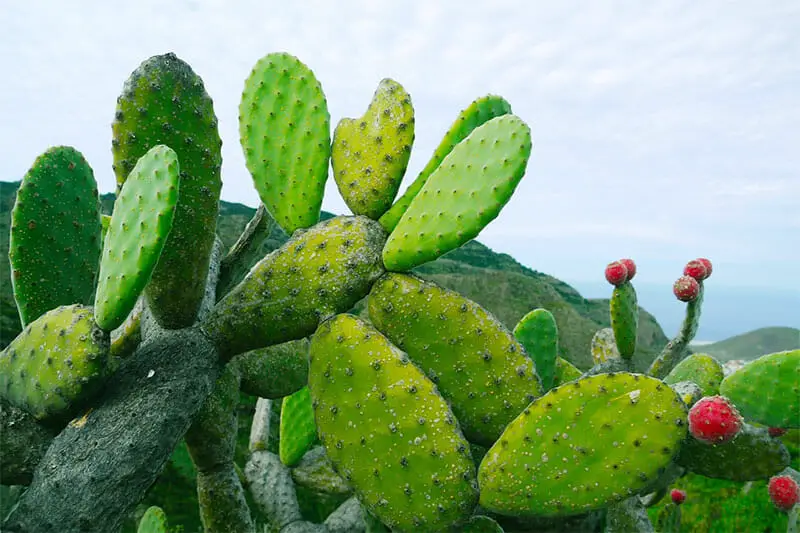 Source: cactuscare.com
Source: cactuscare.com
In plant morphology thorns spines and prickles and in general spinose structures sometimes called spinose teeth or spinose apical processes are hard rigid extensions or modifications of leaves roots stems or buds with sharp stiff ends and generally serve the same function. Loss of water from the leaves tend the roots to pull more water from the ground. Lets break these two reasons down a little further shall we. In some plants the leaves are modified into scale leaves and perform the function of. What is a modification into the spine in a cactus plant.
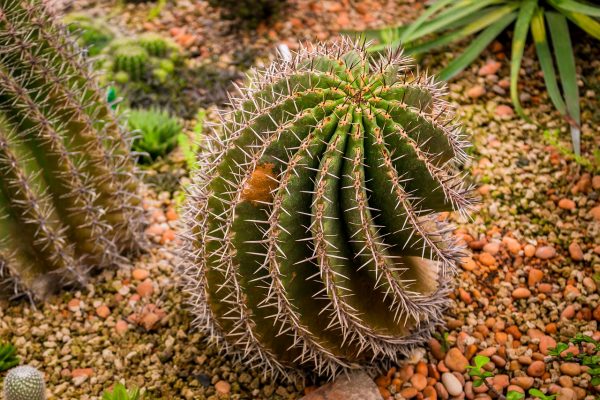 Source: plantsnap.com
Source: plantsnap.com
If it arises from the epidermis outside the branch it is called prickle when it originate s in leaves margin or apex it is defined a marginal or Apical tooth. In this the leaves are modified into hooks and help the plant to climb the support. Air condenses to form dew that is captured by the cactus spines and hairs and directed to the ground where it is quickly absorbed by the roots. Example spines on cactus. Aloe Vera Isnt a Cactus but Aloes Cacti Are Both Succulents.
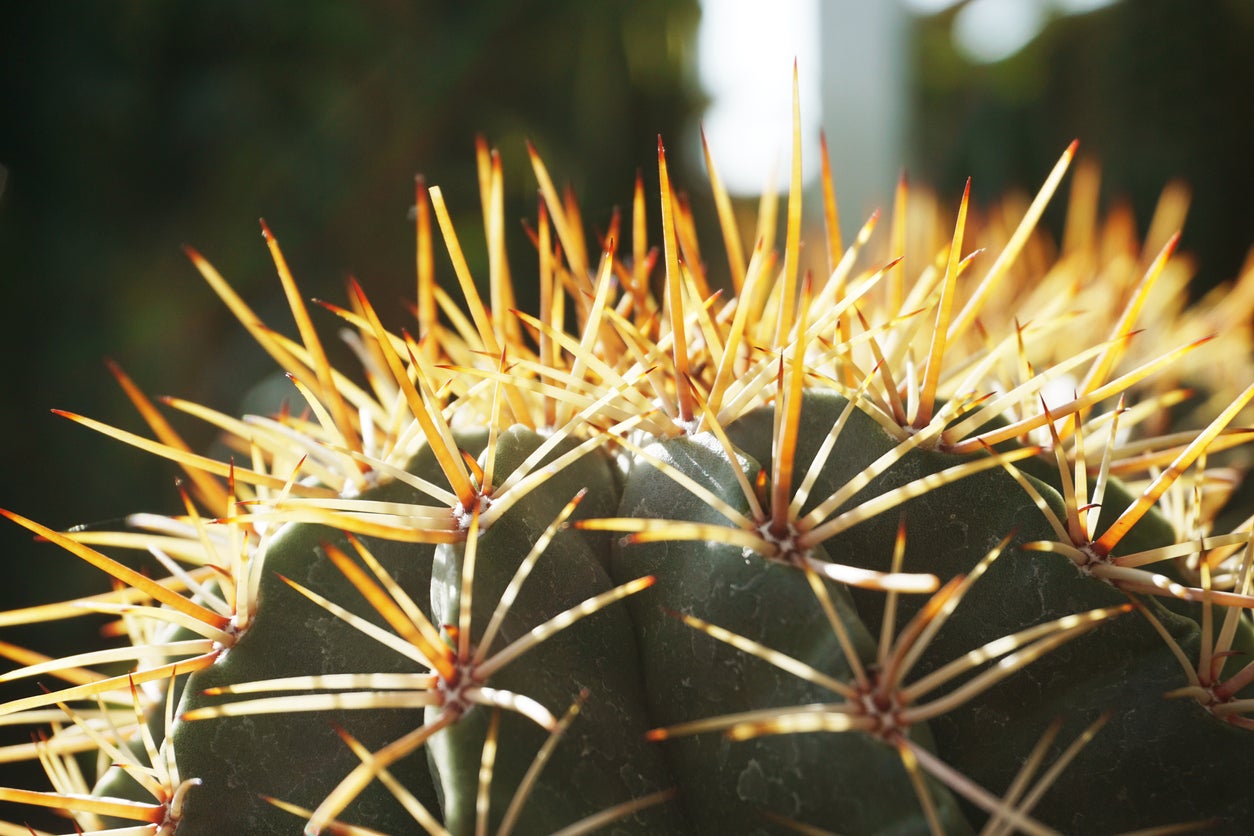 Source: gardeningknowhow.com
Source: gardeningknowhow.com
In the absence of leaves enlarged stems carry out photosynthesis. The roots of the cactus plant are usually found near the surface and rarely go deep. Bulbils are axillary buds that have become fleshy and rounded due to storage of food. Leaves release water from the stomata to cool the plant. In the absence of leaves enlarged stems carry out photosynthesis.
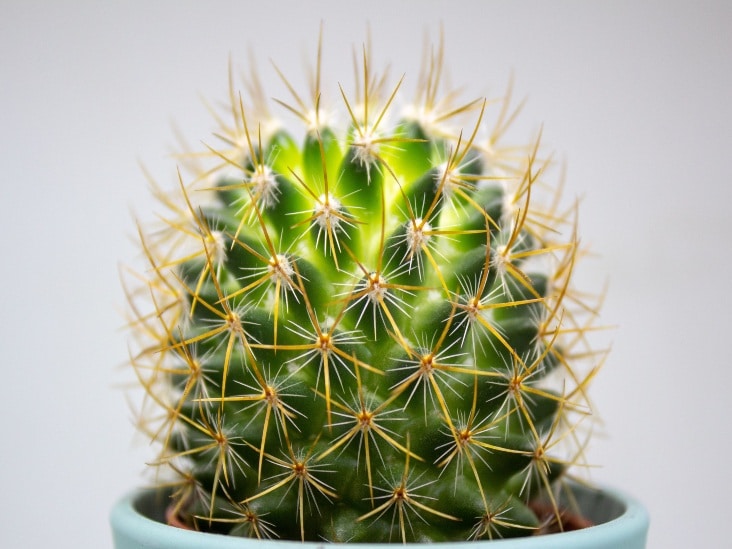 Source: cactusway.com
Source: cactusway.com
In this type the leaves become wholly or partially modified into sharp pointed structures known as spines. They also have other modifications to reduce the loss of water because in the deserts is rare to rain. Some spines are called stipular spines because they are modified sharp-pointed stipules at the base of a leaf. If it arises from the epidermis outside the branch it is called prickle when it originate s in leaves margin or apex it is defined a marginal or Apical tooth. This process is called transpiration.
 Source: biocircuits.ucsd.edu
Source: biocircuits.ucsd.edu
Physically deterring animals from eating the plant material. In this the leaves are modified into hooks and help the plant to climb the support. Leaves release water from the stomata to cool the plant. Secondly aloe vera leaves have spikes on them which look a lot like cactus spines although theyre not actually cacti. They become detached from the plant fall on ground and develop into a new plant.
 Source: kbcliv.in
Source: kbcliv.in
The leaves of cactus are modified to sharp spine to reduce the area of water loss when sweat. Lets break these two reasons down a little further shall we. Regular leafy plants lose a lot of moisture through their leaves and in the desert where every drop counts. They also protect the plant from grazing animals. Secondly aloe vera leaves have spikes on them which look a lot like cactus spines although theyre not actually cacti.
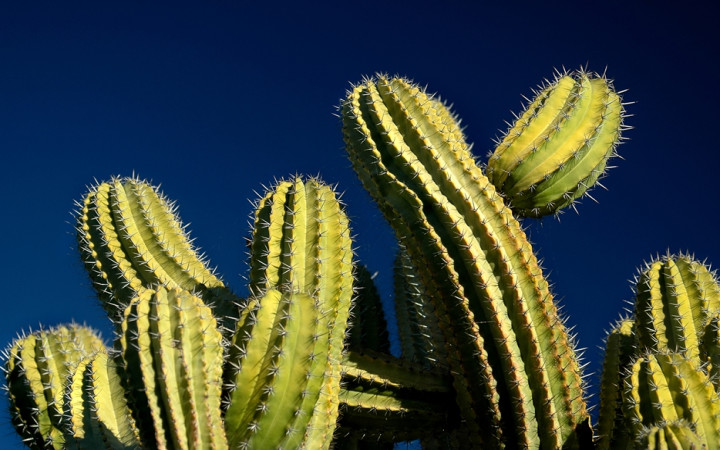 Source: wonderopolis.org
Source: wonderopolis.org
What is a modification into the spine in a cactus plant. Do you mean the prickly spineS. They also protect the plant from grazing animals. Physically deterring animals from eating the plant material. In this type the leaves become wholly or partially modified into sharp pointed structures known as spines.
 Source: pinterest.com
Source: pinterest.com
Leaves release water from the stomata to cool the plant. The spine is technically a modified sharp-pointed leaf. They also have other modifications to reduce the loss of water because in the deserts is rare to rain. Example spines on cactus. Get the answers you need now.
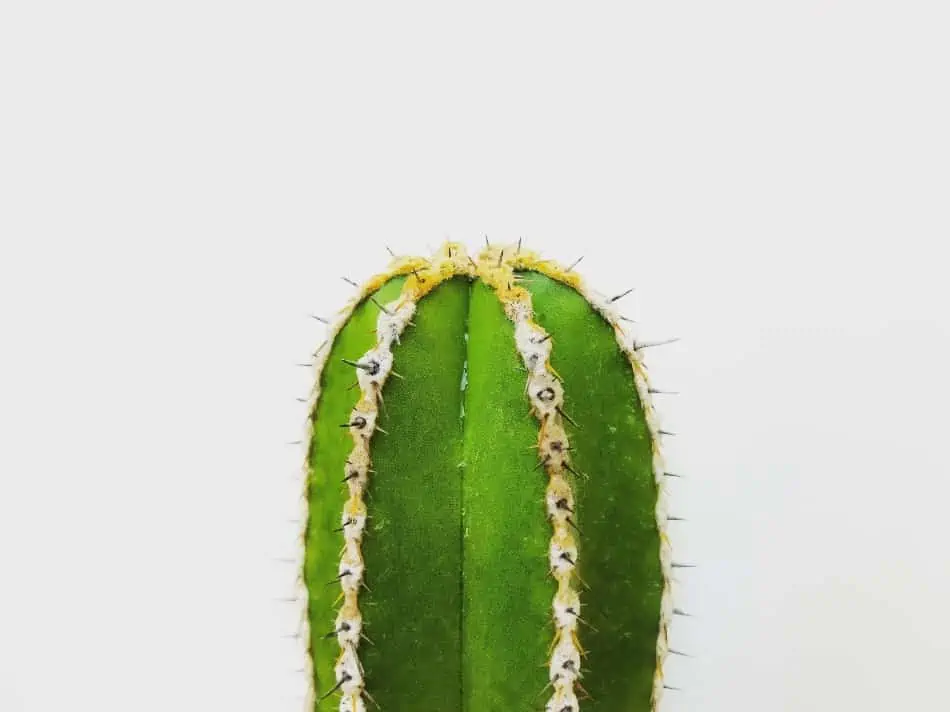 Source: cactusway.com
Source: cactusway.com
Thorns are modified branches appearing as hard woody sharp outgrowths that protect the plant. Most species of cacti have lost true leaves having only spines which are highly modified leaves as well as defending against the herbivores. When a spine originates from a stem modification and arise from the axillary or apical bud it is defined thorn. What is a modification into the spine in a cactus plant. The leaves in a cactus plant are modified into spines to prevent the loss of water.
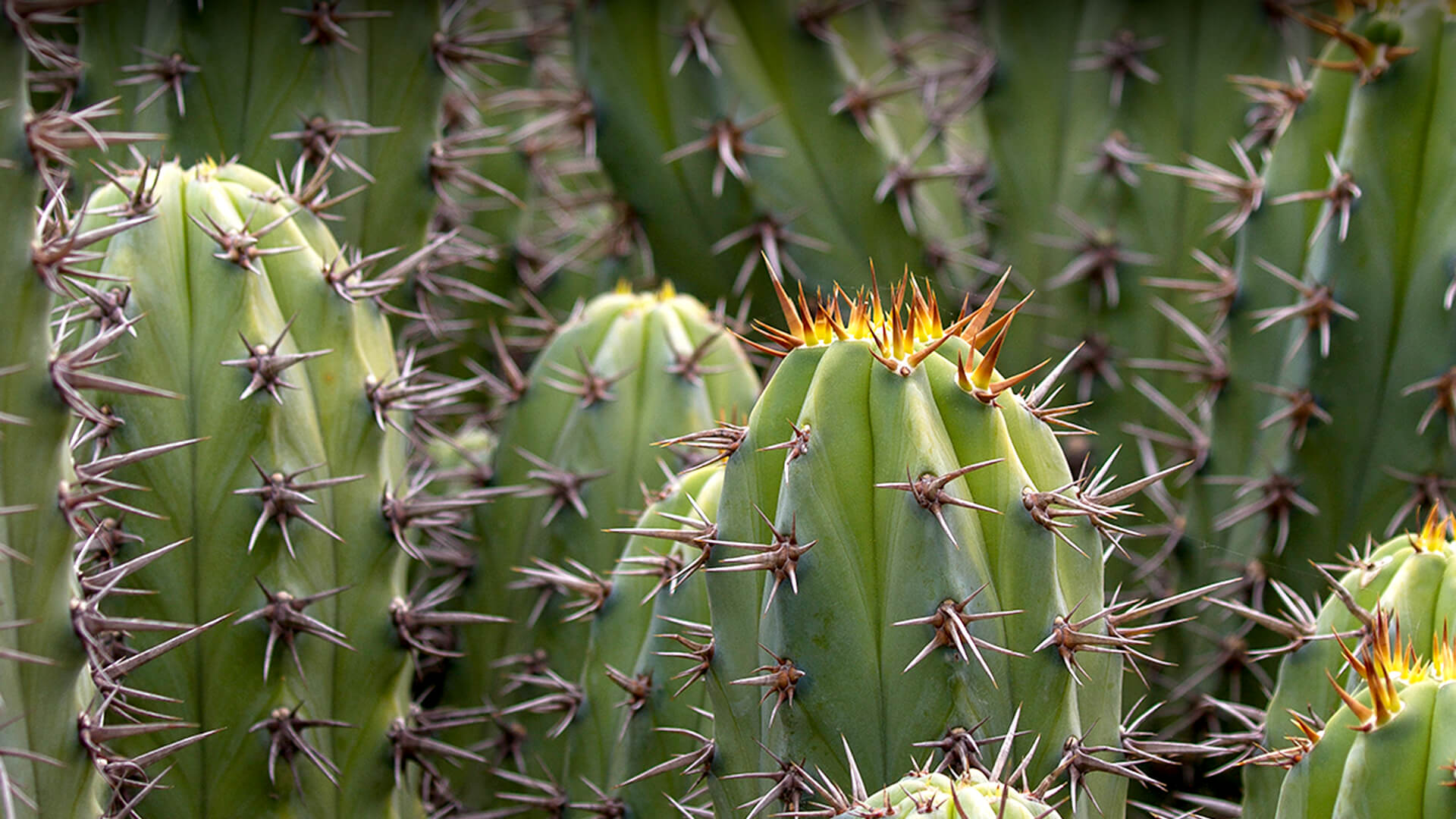 Source: animals.sandiegozoo.org
Source: animals.sandiegozoo.org
In Bignonia unguiscati the three terminal leaflets of the compound leaves become stiff corved and claw like hooks. Some spines are called stipular spines because they are modified sharp-pointed stipules at the base of a leaf. This process is called transpiration. The roots of the cactus plant are usually found near the surface and rarely go deep. They also have other modifications to reduce the loss of water because in the deserts is rare to rain.
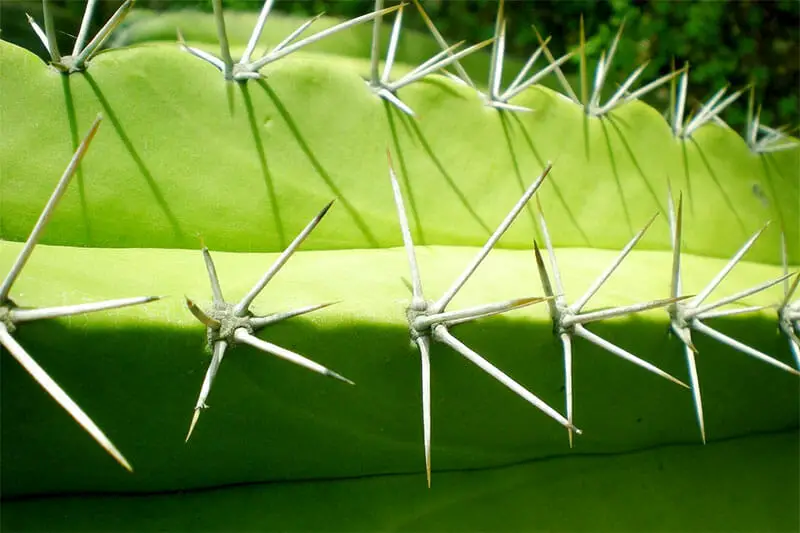 Source: cactuscare.com
Source: cactuscare.com
What is a modification into the spine in a cactus plant. The leaves of cactus are modified to sharp spine to reduce the area of water loss when sweat. Most species of cacti have lost true leaves having only spines which are highly modified leaves as well as defending against the herbivores. Common examples include roses osage orange and devils walking stick. Secondly aloe vera leaves have spikes on them which look a lot like cactus spines although theyre not actually cacti.
Source: quora.com
Regular leafy plants lose a lot of moisture through their leaves and in the desert where every drop counts. What is a modification into the spine in a cactus plant. What is a modification into the spine in a cactus plant. The leaves in a cactus plant are modified into spines to prevent the loss of water. If so they are modified leaves.
 Source: smartgardenguide.com
Source: smartgardenguide.com
Leaves release water from the stomata to cool the plant. These adaptations allow cactus species to grow in hot and dry places. In this type the leaves become wholly or partially modified into sharp pointed structures known as spines. In the absence of leaves enlarged stems carry out photosynthesis. This visual similarity may have led you to believe aloe very might be a type of cactus.
 Source: thezensucculent.com
Source: thezensucculent.com
They become detached from the plant fall on ground and develop into a new plant. They also protect the plant from grazing animals. Spines help to reduce the loss of water by transpiration. If it arises from the epidermis outside the branch it is called prickle when it originate s in leaves margin or apex it is defined a marginal or Apical tooth. The cactus plant grows in a desert where there is a shortage of water.
 Source: quora.com
Source: quora.com
Leaves release water from the stomata to cool the plant. In this the leaves are modified into hooks and help the plant to climb the support. Some spines are called stipular spines because they are modified sharp-pointed stipules at the base of a leaf. Regular leafy plants lose a lot of moisture through their leaves and in the desert where every drop counts. In plant morphology thorns spines and prickles and in general spinose structures sometimes called spinose teeth or spinose apical processes are hard rigid extensions or modifications of leaves roots stems or buds with sharp stiff ends and generally serve the same function.
 Source: cactusway.com
Source: cactusway.com
The leaves of cactus are modified to sharp spine to reduce the area of water loss when sweat. Being narrow and sharp not only helps defend the plant but also the reduced surface area helps limit water loss. In this the leaves are modified into hooks and help the plant to climb the support. Regular leafy plants lose a lot of moisture through their leaves and in the desert where every drop counts. Some spines are called stipular spines because they are modified sharp-pointed stipules at the base of a leaf.
 Source: youtube.com
Source: youtube.com
Air condenses to form dew that is captured by the cactus spines and hairs and directed to the ground where it is quickly absorbed by the roots. If it arises from the epidermis outside the branch it is called prickle when it originate s in leaves margin or apex it is defined a marginal or Apical tooth. Some spines are called stipular spines because they are modified sharp-pointed stipules at the base of a leaf. If so they are modified leaves. Common examples include roses osage orange and devils walking stick.
 Source: researchgate.net
Source: researchgate.net
Spines help to reduce the loss of water by transpiration. The leaves in a cactus plant are modified into spines to prevent the loss of water. In this type the leaves become wholly or partially modified into sharp pointed structures known as spines. What is a modification into the spine in a cactus plant. In Bignonia unguiscati the three terminal leaflets of the compound leaves become stiff corved and claw like hooks.
This site is an open community for users to do sharing their favorite wallpapers on the internet, all images or pictures in this website are for personal wallpaper use only, it is stricly prohibited to use this wallpaper for commercial purposes, if you are the author and find this image is shared without your permission, please kindly raise a DMCA report to Us.
If you find this site serviceableness, please support us by sharing this posts to your favorite social media accounts like Facebook, Instagram and so on or you can also bookmark this blog page with the title which is a modification into the spine in a cactus plant by using Ctrl + D for devices a laptop with a Windows operating system or Command + D for laptops with an Apple operating system. If you use a smartphone, you can also use the drawer menu of the browser you are using. Whether it’s a Windows, Mac, iOS or Android operating system, you will still be able to bookmark this website.
Category
Related By Category
- Leatherman modification ideas
- Organizational behavior modification theory ideas
- Seamoth modification station location information
- Custody modification reasons information
- Kak shockwave modification information
- Subnautica cant place vehicle modification station information
- Loan modification while in chapter 13 information
- Behavior modification is based upon the principles of rewards and punishments advanced by ideas
- Modification lawyer information
- Z4 modification information